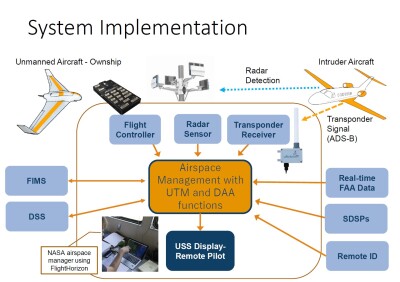Being able to appropriately consider how enterprises can and should utilize drone technology is a process that various companies are working through, but when you’re talking about a massive and global organization like Bechtel, that consideration is taken to a whole new level. Nate Fuller’s job is to help the company as a whole do just that, and he talked through what that means for him and for Bechtel during episode #26 of the Commercial Drones FM podcast.
Host Ian Smith talked with Nate about the reasons and motivations behind Bechtel’s serious embrace of the technology and how that will impact the organization’s present and future. After listening to the show, I connected with Ian to further explore a few of the topics he discussed with Nate which are focused on the ROI Bechtel was able to identify as a result of using drones, what a complete drone service package might look like and plenty more.Check out the additional insights Ian provided before or after listening to the podcast below. You can also listen to the episode on iTunes or GooglePlay. Jeremiah Karpowicz: Nate’s official title is "Innovation Implementation Manager”, and you explored what exactly that title means for him and for Bechtel. In your experience, what kind of a difference does it make when an organization can specifically task someone to look at the possibilities around drone technology?Ian Smith: Having someone in an organization who is implicitly focused on the benefits of integrating drone technology is absolutely invaluable. Not every organization can afford this but for an enterprise-level company like Bechtel, it's a no-brainer. Quite a few of the people that I speak with in larger organizations have, and are part of, departments specifically focused on innovation and the acquisition and evaluation of new technology. It's important to note that even small businesses can easily experiment with the implementation of drones. Since they're so cost effective from a hardware perspective, the expense is usually minor. The next step is to test out different software suites that will accomplish your goals. Fortunately, most of these pieces of software also offer free trials. Document your experiences, question the companies you are evaluating, and ensure they're in it for the long haul. ROI is a big issue these days, which is why the 2 to 1 cost savings over traditional survey methods that Bechtel was able to identify for precision surveying using photogrammetry is so significant. Were you surprised to hear that they’re already able to quantify that kind of return?Initially, I was a bit surprised that they achieved that level of savings. Nate seemed adamant that drones will provide massive savings for them. A 50% decrease in expenses by using drones is huge. Obviously, drones are best suited only for specific types of surveys. There will absolutely be cases where terrain, weather, regulations, or sheer size of job mean that the mission will be better served by a traditional, ground-based survey crew. I believe one of Bechtel's largest challenges will be incorporating standards into their global organization that propagate the deployment of these cost-saving drones not just locally, but at scale. Nate referred to drones as “information systems”, which I thought was a great way to position the technology. Do you think organizations would be more enthusiastic about embracing drone technology if it were promoted that way?Flying robots are a hot commodity and definitely have suffered from misinformed perspectives in the past. The fact that Bechtel views drones as tools is great for them and commercial drones are indeed just that—tools—and at the state they are in today, information is the ultimate value of what they provide. Aerial data collection, aka remote sensing, is their greatest strength. As the drone industry continues on its trajectory of maturation and the hype cycle starts to wear off, we'll see a more pragmatic approach to information systems like drones. Being able to offer a complete drone solution is another big topic in the industry, and Nate mentioned that to him, a complete service package would comprise of the hardware, pilots and data hosting service. What other elements or offerings do you think will eventually be part of an especially relevant complete service package for drone utilization?I think that there are going to be some growing pains in this area. While it's very attractive from an enterprise standpoint, as time goes on and hardware becomes more autonomous, the pilot requirement will become less important. Even still, if the pilot requirement can be satisfied internally or autonomously, it then comes down to hardware and data hosting. DJI continues to lead the pack in SDK availability and development, enabling all kinds of companies to build valuable software businesses on top of their hardware. Their drone offerings are also becoming vertical-specific, with drones offered that excel at specific tasks—like agriculture or inspection. But even with that said, large companies like Bechtel want solutions. They don't want to have to manage an entire operation down to the nuts and bolts—this is why they're big companies. They know when to do it all themselves and when to contract professional and implementation specialists. Regulatory challenges are huge once you start approaching the drone implementation challenge globally. The importance of compliance, logging, and safety procedures cannot be overstated and I believe that is incredibly relevant to include when choosing a complete service package for drone utilization. Even with the quantified ROI that Bechtel has seen in their use of drones, Nate said the biggest benefits are yet to be seen. What does that tell you about what the future has in store for companies that are currently trying to leverage and integrate the technology?A company like Bechtel has their hands in so many industries that it's hard, even for them, to predict how they'll be using semi and fully-autonomous robots in the future. I think that we're subconsciously looking at drones a bit separately than other types of robots that have already infiltrated the enterprise. The fact that they fly puts them under the rule of the FAA and other regulatory bodies which control aviation, but we can't forget that they're just another type of robot and robots are already assembling our cars, driving them, sorting our packages for delivery, and then delivering them to our doors. When it's all about the bottom line, we're quickly headed to more automation, and robots are great at that. It seems like the future will bring drones that accomplish many more tasks than just aerial data collection with cameras. Companies will start to see much more automation and with that, decreasing costs—making drones a no-brainer.Subscribe
The information you submit will be stored and used to communicate with you about your interest in Commercial UAV News. To understand more about how we use and store information, please refer to our privacy policy.
December 20, 2016
Approaching and Evaluating UAV Acquisition with Bechtel - Commercial Drones FM Podcast Insights















Comments